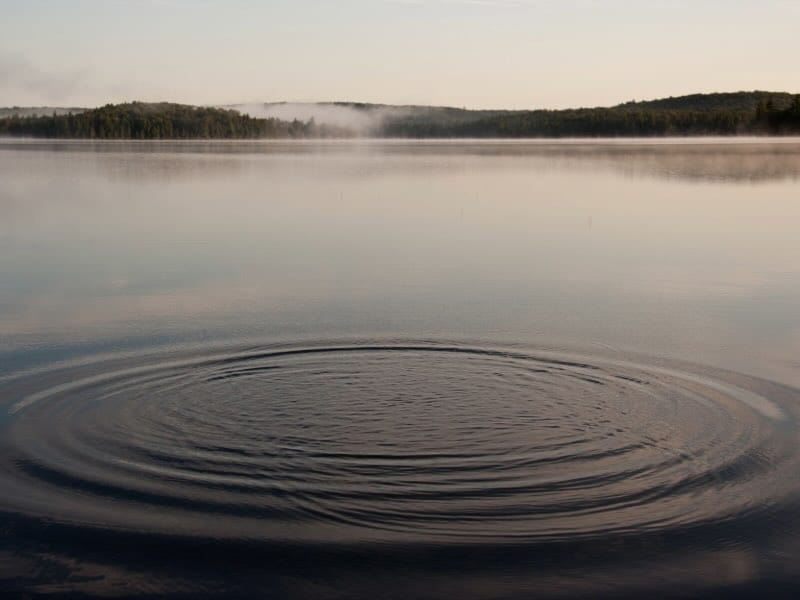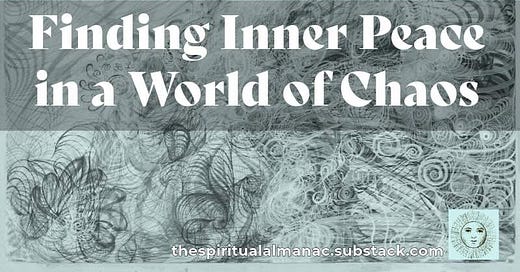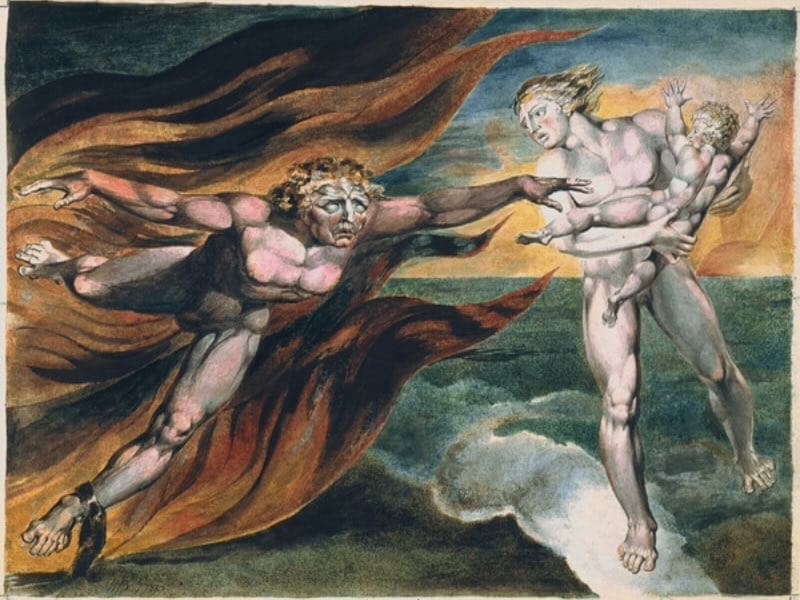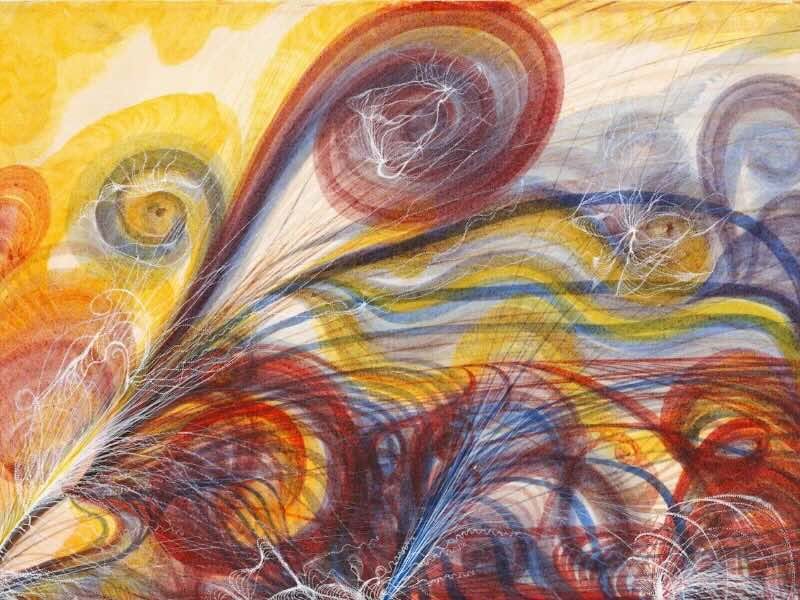Quick Update: You may have noticed The Spiritual Almanac has been quiet lately. I've been channeling my energy into finishing my book, From Zombie to Zenith: Finding Mindfulness in a Mindless World.
Moving forward, I'm shifting from weekly celebration-based posts to sharing insights directly from the book's principles. Same spiritual foundation, just without tying it to specific calendar dates. This approach feels more authentic as I complete my book.
Looking forward to reconnecting with you all through these new posts!
See today’s homework at the end of this article.
In times like these, I often wish for a crystal ball, wanting to skip to the movie's end to see if we live or die.
It’s natural to think the worst with the world tilted on its axis, especially considering the dramatic shifts in global politics and alliances. Everything we thought we knew seems to be turning upside down.
But maybe there's a more meaningful way to approach these challenging times—one that merges our understanding of current events with timeless spiritual principles.
From External Chaos to Internal Understanding
True freedom lies in looking beyond the external laws of our world—the political systems, economic structures, and societal norms that seem to govern everything.
There’s a spiritual reality that remains untouched by the chaos around us. This foundation is accessible when we shift our perspective from experiencing external turmoil to connecting with our inner wisdom.
When we witness dramatic shifts in international relations—countries turning against longtime allies or leaders making unexpected allegiances—it's natural to feel confused, betrayed, and even fearful.
These reactions stem from our attachment to how we think the world should operate.
But what happens when we shift our focus from external chaos to internal understanding? I'm not talking about ignoring reality but approaching it with greater awareness and compassion.
If we get caught up in fear and judgment, which fuel global conflicts, we lose sight of our inner peace and ability to respond clearly. Our true power doesn't come from controlling external events but from recognizing our inherent connection to something greater than ourselves.
As Zen master Thich Nhat Hanh wisely observed:
Fear keeps us focused on the past or worried about the future. If we can acknowledge our fear, we can realize that right now we are okay. Right now, today, we are still alive, and our bodies are working marvelously. Our eyes can still see the beautiful sky. Our ears can still hear the voices of our loved ones.Beyond Good vs. Evil
Like comic book characters, we live in a world of good vs. evil, them vs. us, right from wrong based on our individual biases.
But what if, instead of condemning leaders who make choices we disagree with, which is our first inclination, we decide not to contribute to the "evil"?
If this newsletter brings value to your life,
consider becoming a supporter.
Your contribution directly helps me continue
creating this work. Support now with just a click.
The "us versus them" mentality only perpetuates cycles of conflict and suffering. When we demonize those with different views or who make choices we disagree with, we strengthen the very divisiveness that underlies global tensions.
This doesn't mean we become passive in the face of injustice. Instead, we approach challenges from a more centered place:
We release attachment to judgment and blame (two chapters in my book From Zombie to Zenith).
We recognize the humanity in everyone, even those we consider "enemies."
We create space for dialogue and understanding.
We act from wisdom rather than reactivity.
As Martin Luther King Jr. reminded us, "Darkness cannot drive out darkness; only light can do that. Hate cannot drive out hate; only love can do that."
From Individual Transformation to Collective Change
Inner peace isn't just some personal feel-good thing. It shapes how we vote, what news we consume, and who we support in leadership roles.
I started by observing my gut reactions to the headlines. Was I getting all worked up and feeding the massive hatred already plaguing our planet, or was I trying to understand what was happening beneath the surface? It made me realize I had choices about how to respond.
When enough of us make these shifts, we naturally gravitate toward leaders who talk less about enemies and more about common ground. We start to care less about tough talk and more about actual solutions.
Start creating these solutions at the local level. Keep asking yourself, “What can I do to help? What can I do to help?” Ask inner guidance to show you. You don’t have to seek it out. It will come to you, and you will know, even if it’s a simple gesture of smiling at a stranger.
It's not about being naive—it's about incorporating our deepest values into our engagement with the messy, complicated world of politics and international relations.
Practical Steps Toward Inner Peace
Even in times of global uncertainty, we can cultivate inner peace through practical steps:
Mindful awareness: Notice when fear is driving your reactions to world events. Pause before sharing outrage or drowning in anxiety-producing news cycles.
Research shows that regular mindfulness practice significantly reduces activity in the amygdala (our brain's fear center) while strengthening the prefrontal cortex, which helps with emotional regulation.1
Shift perspective: Look beyond the surface-level drama to understand the underlying human dynamics. Remember that behind every headline are complex human beings motivated by their own fears, hopes, and beliefs.
Choose compassion: When discussing difficult topics, approach conversations with openness rather than judgment. Listen to understand rather than to respond.
Take meaningful action: Channel concern into constructive engagement. Support local causes that build bridges rather than walls.
Maintain inner balance: Cultivate practices that reconnect you with your inner wisdom—meditation, nature walks, creative expression, or whatever helps you access your deeper self.
The Ripple Effect of Consciousness

"If we could change ourselves, the tendencies in the world would also change. As a man changes his own nature, so does the attitude of the world change towards him," wrote Mahatma Gandhi, giving us the message of what's often simplified to "be the change."
Change starts with each of us. We can’t just wait and see what happens and hope someone else out there fixes things. We must stop the hate at our own doorsteps by doing our best with love in our hearts.
The more we embody principles of compassion and understanding in our personal lives, the more we contribute to a collective shift in consciousness that can ultimately transform the world.
Even small acts of kindness and compassion create ripple effects, like pebbles thrown into a clear mountain lake. They generate waves of positive change that reach far beyond our immediate sphere of influence. (of course, this also works in the opposite direction—see your homework at the end.)
Choosing to see our fundamental interconnectedness is a radical act in a world that seems determined to divide us. This is not an easy thing to do when our first reaction is to lash out and want horrible things to happen to those we think are doing horrible things to us.
Thinking this way only hurts us.
Remember: our true power lies not in controlling external circumstances but in choosing how we respond to them. And in that choice lies the possibility of genuine personal and collective transformation.
Gotink, R.A., Meijboom, R., Vernooij, M.W. et al. (2016). "8-week Mindfulness Based Stress Reduction induces brain changes similar to traditional long-term meditation practice – A systematic review." https://pubmed.ncbi.nlm.nih.gov/27429096/
Your Homework for Today: Throwing Pebbles
Watch your thoughts today and see how often you catch yourself aligning your mood with the news. Pretend those thoughts are pebbles. Hold them in your hand. Take one and position yourself to throw it into the lake of humanity’s consciousness. This particular pebble is heavy, distorted, covered in tar. You know you purposely add to the world’s hatred as soon as you throw it. At this point, you have a decision. Will you throw it and cause the ripple effect, or lay it back on the ground? What do you do?
If this newsletter brings value to your life,
consider becoming a supporter.
Your contribution directly helps me continue
creating this work. Support now with just a click.







